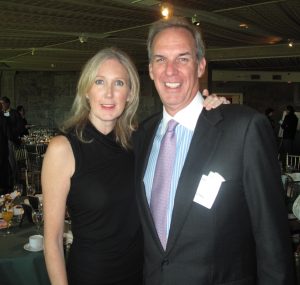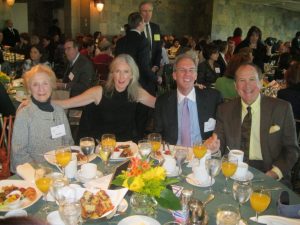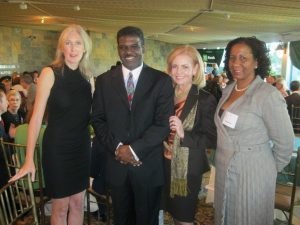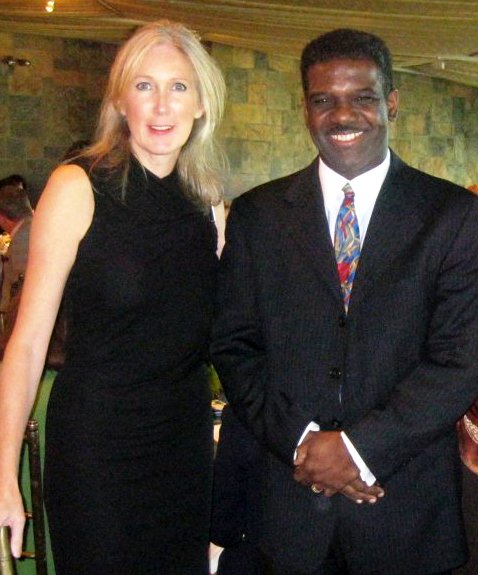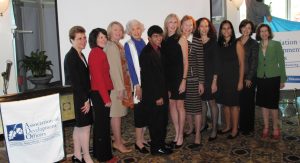
Members of dozens of nonprofits like the Jay Heritage Center attended the highly successful Association of Development Officers (ADO) Philanthropy Awards breakfast on Friday November 12, 2010. The event was a great opportunity for like minded professionals and volunteers to exchange ideas about improving our community through giving and education.
JHC President Suzanne Clary had the chance to talk to Westchester County’s Chairman of the the Board of Legislators, Ken Jenkins, about making the historic Jay Estate which is on the African American Heritage Trail and a Hudson River Valley National Heritage Area site more accessible to visitors. As it stands, many important African American heritage sites in Westchester are not serviced by public transportation. Clary suggested the implementation of a cooperative shuttlebus plan along the Boston Post Road reusing an existing County bus route.
The Jay Estate is a great destination for schools who come to see JHC’s acclaimed play “Striving for Freedom” about the Jay family and their role in the abolition of slavery but also for schools interested in JHC’s other programs about environmental stewardship and sustainability as well as architecture and archaeology. The Jay Estate also has the distinction of a fully operational geothermal heating and cooling system which was installed in the 1838 Peter Augustus Jay House – at 174 years old that makes it the oldest National Historic Landmark structure in New York State with this green technology.
Many programs at the Jay Estate are free – the Jay Heritage Center raises all monies privately or through grants with no cost to taxpayers. JHC receives no funding from Westchester County, New York State or the City of Rye.
Clary accepted the award for Outstanding Nonprofit Board Member on behalf of all her colleagues and the work that they do together with other partner organizations.
JHC programs regularly examine the prevalence and injustice of slavery in New York’s history. Among its goals, the JHC hopes to be “a national focal point for a continuing conversation about the two greatest pieces of unfinished American business–race and land; meaning how we treat each other and how we treat the rest of God’s creation.” Tony Hiss
